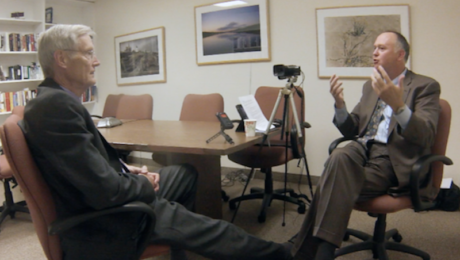New Zealand’s Alcohol and Other Drug Treatment Courts – Justice Speaks Podcast Judges Lisa Tremewan and Ema Aitken are the founders of the New Zealand Alcohol and Other Drug Treatment Courts (AODTC). The late Chief Judge, Russell Johnson, sent a delegation of judges to the National Association of Drug Court Professionals’ annual training conference in
Dr. Robert DuPont Talks Chemical Slavery – Justice Speaks Podcast 50 years ago, Robert DuPont, M.D. started working in a state prison as a psychiatrist to see if he could make a difference in those prisoners’ lives. As he discusses in this episode of Justice Speaks, he recognized fairly early on that the rise in
A Time of Celebration and Hope www.recoverymonth.gov In Memorium: Christopher Kennedy Lawford, 33 years sober. While recovery should be celebrated every day, September is the 29thAnnual National Recovery Month to remind us of the importance of this issue in our communities. We ask local policy makers to sign proclamations to demonstrate a commitment to improving
Why do judges and other justice professionals need to be cognizant of trauma as it relates to court cases? Like it or not, trauma seems to be the overwhelming negative factor affecting many people who come to court. From treatment court participants to those who have experienced child abuse and neglect, “adverse childhood events” (ACE)
Part Two – Marketing Your Treatment Court Typically, the court system does not promote or advertise its work. Sadly, it is not like the court system has a shortage of “clients.” There is no need to advertise. Even worse, many of its “clients” are repeat customers. The same is true for Treatment Courts; there is no shortage
By: Helen Harberts, Guest Author Persons suffering from substance use disorders do not just suffer during government hours! Indeed, they often suffer more when they are not receiving treatment and attention from the team. Recovery is difficult and it takes a long time. Supervision works in the community, not just in the Court or the
Part One – A Sustainability Plan When I was the Senior Director at NADCP’s National Center for DWI Courts, I trained new teams on how to implement DWI Courts, and one of the most common questions I received was: How do we “fund” the court? Treatment Courts[1]are one of the most effective criminal justice programs
By: Helen Harberts, Guest Author Most treatment courts are well aware of the importance of responding to participant behavior in a swift and certain manner. Reliable detection of good behavior and undesired behavior, with rapid responses, is the most effective form of behavior modification in the treatment court population. Most treatment courts know that severity
Within a workplace setting what does an employer do when there is a legitimate reason to believe that the employee has been abusing alcohol or taking other drugs. The law regarding employee privacy is evolving and many testing programs should be considered open to a legal challenge. What is the right balance of the privacy












